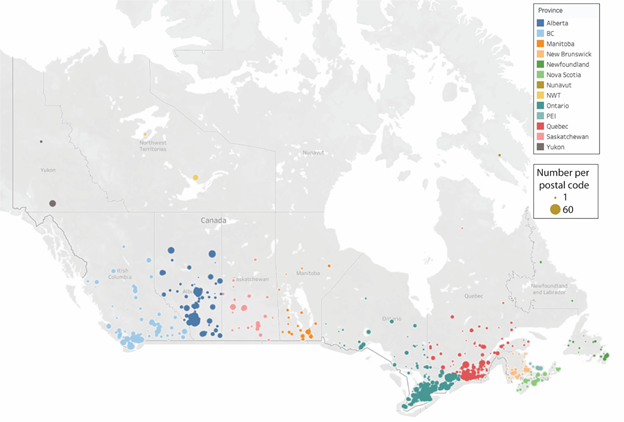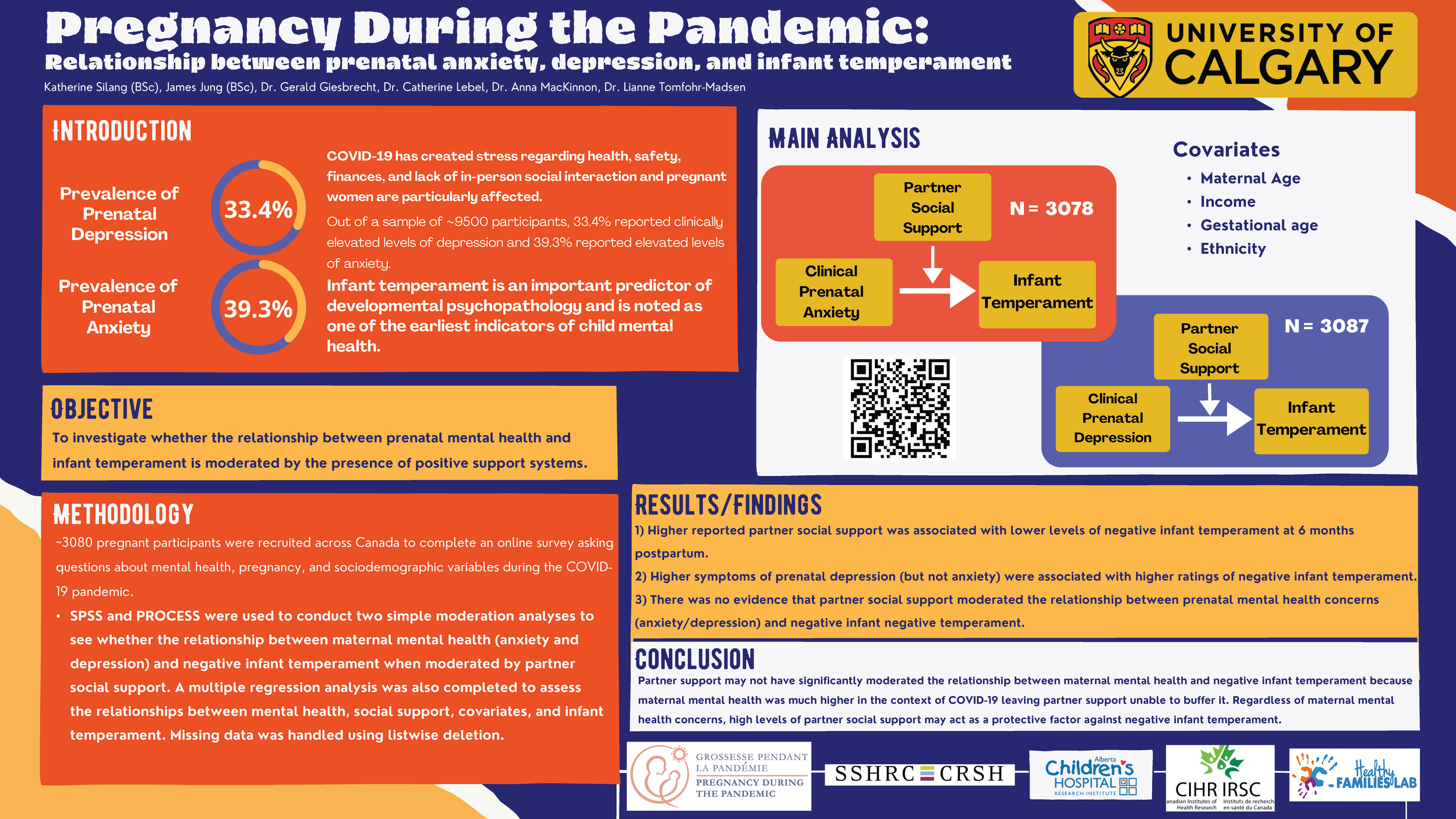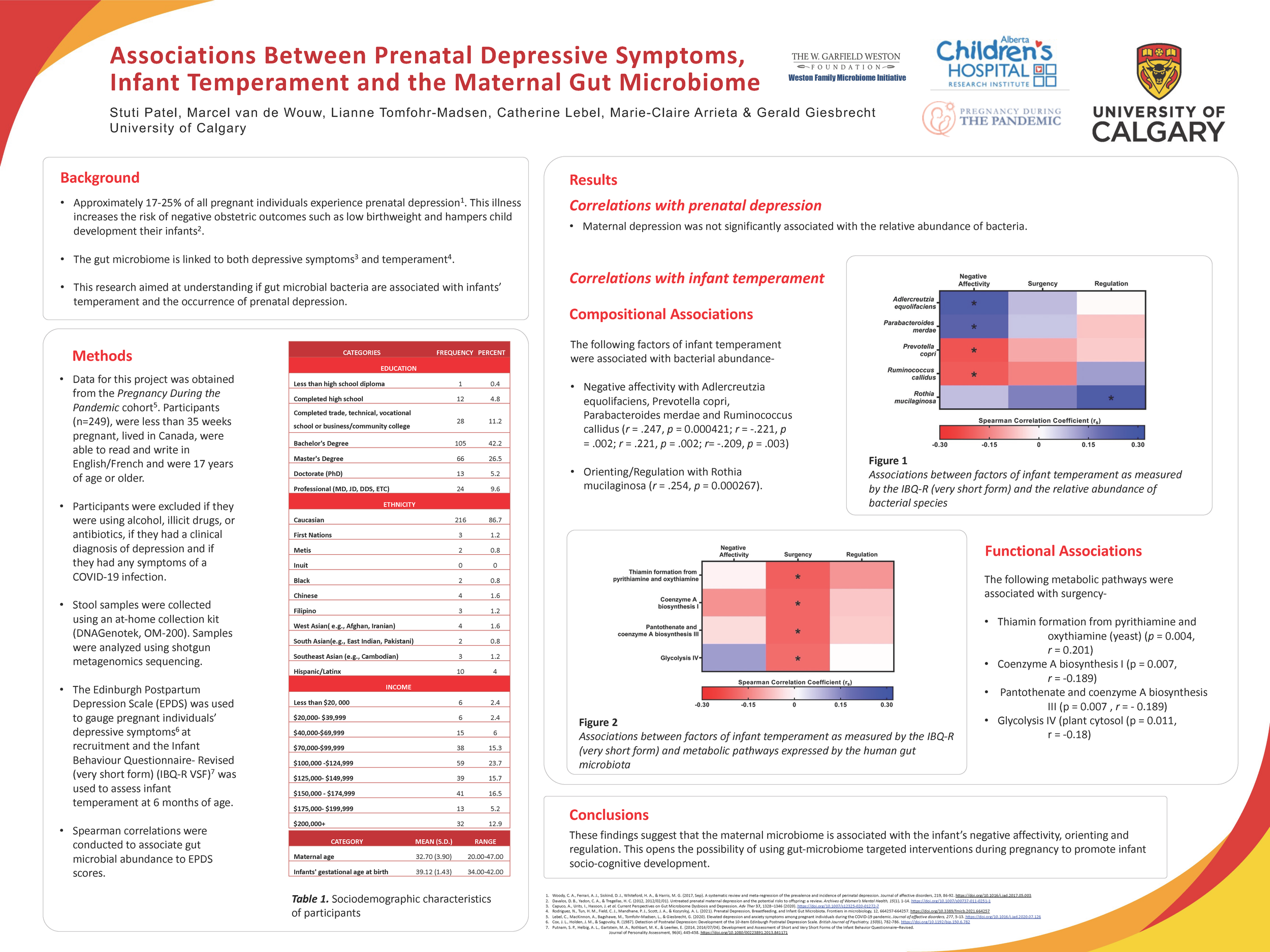
Study Results
Here we highlight findings from our study in easy-to-understand formats such as posters, videos, and infographics. Links to published scientific articles are also available.
Protocol for the Pregnancy During the Pandemic (PdP) Study
The Pregnancy During the Pandemic (PdP) study was designed to investigate the associations among exposure to objective hardship caused by the pandemic, perceived stress and psychological distress in Canadian pregnant individuals, and developmental outcomes in their offspring.
Geographic distribution of study participants by postal code
(Click the image to enlarge it in a new tab)
Feature Publication
Making diversity visible: Collecting gender identity and sexual orientation data in perinatal research
Publications
Click through the images below to open the infographic in a new tab for easier viewing.
COVID-19 and Child Development
Prenatal depressive symptoms are associated with altered structural brain networks in infants and moderated by infant sleep
Symptoms of depression in mothers during pregnancy may impact early development in brain networks important for emotional regulation. However, longer infant sleep duration appeared to buffer these effects, suggesting that sleep may play a role in infant brain network development.
(Infographic to come soon)
Prenatal Maternal Distress During the COVID-19 Pandemic and Associations With Infant Brain Connectivity
Sleep and mental health in pregnancy during COVID-19: A parallel process growth model
Fear of COVID-19, mental health, and pregnancy outcomes in the pregnancy during the COVID-19 pandemic study
Alcohol and substance use in pregnancy during the COVID-19 pandemic
Prenatal care disruptions and associations with maternal mental health during the COVID-19 pandemic
Elevated depression and anxiety symptoms among pregnant individuals during the COVID-19 pandemic
These posters were presented at various local, national, and international conferences. Click the image to open the poster in a new tab for easier viewing.













